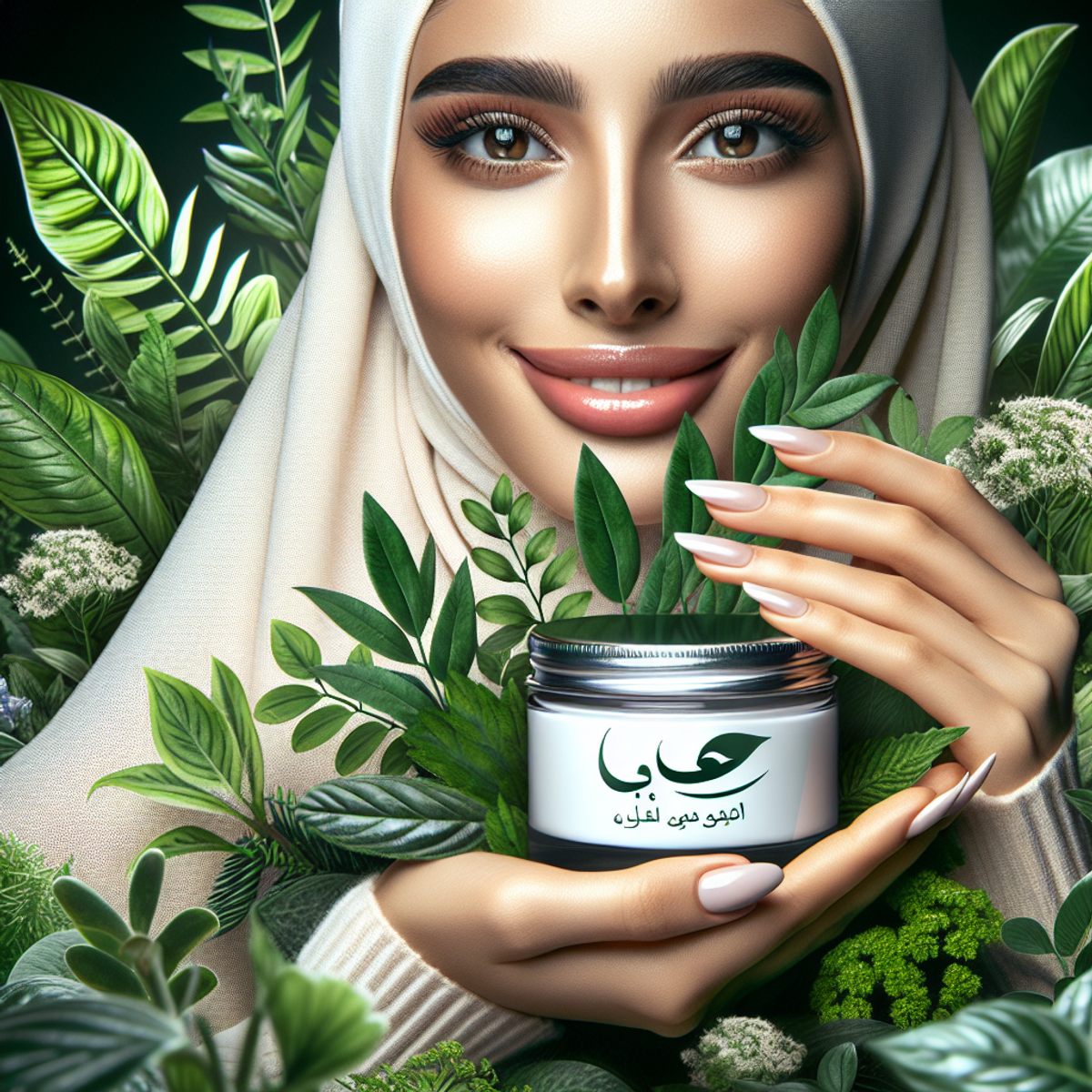The Best Organic and Natural Skin Care Routine

Introduction
The best organic and natural skincare routine is not only beneficial for your skin but also for the environment. By opting for natural skincare products, you can nourish your skin while making sustainable choices that minimize harm to the planet. In this article, we will guide you on how to create your own personalized best organic and natural skincare routine, considering different skin types and individual preferences.
Why Sustainability Matters in Skincare
To understand organic and natural skincare fully, it’s crucial to know why sustainability plays a vital role. This approach benefits not only your skin but also the environment, aligning with eco-friendly principles.
The Variety of Choices for Different Skin Types
Organic and natural skincare offers a wide range of options for various skin types and concerns. Whether you have oily, dry, combination, or sensitive skin, there are tailored solutions available that prioritize both your skin’s health and the well-being of our planet.
In the next sections, we will discuss how specific organic and natural skincare practices can benefit different skin types. We will also explore how using natural ingredients can promote healthy skin while minimizing environmental impact. Let’s begin our journey toward creating a skincare routine that nurtures both your skin and our planet.
Understanding Your Skin Type
Understanding your skin type is an essential first step in building a skincare routine that is effective and tailored to your specific needs. By identifying your skin type, you can choose the right products and address any specific concerns or issues you may have. Let’s take a closer look at the different skin types and their characteristics:
Oily Skin
- Characteristics: Oily skin tends to produce excess sebum, resulting in a shiny appearance and enlarged pores.
- Common Issues: Oily skin is prone to acne breakouts, blackheads, and whiteheads due to clogged pores.
Dry Skin
- Characteristics: Dry skin lacks moisture and often feels tight or flaky.
- Common Issues: Dry skin can be prone to rough texture, redness, and irritation. It may also show signs of premature aging such as fine lines and wrinkles.
Combination Skin
- Characteristics: Combination skin has both oily and dry areas, with an oily T-zone (forehead, nose, and chin) and drier cheeks.
- Common Issues: Combination skin may experience oiliness and breakouts in the T-zone while having dryness or sensitivity in other areas.
Sensitive Skin
- Characteristics: Sensitive skin is easily irritated by external factors such as certain ingredients, environmental factors, or changes in temperature.
- Common Issues: Sensitive skin may experience redness, itching, burning sensations, or allergic reactions when exposed to irritants.
It’s important to note that these are general classifications, and individual variations exist within each category. You may find that your skin exhibits characteristics of more than one type or changes over time due to various factors such as climate, hormones, or lifestyle.
To determine your skin type accurately, consider the following factors:
- Appearance: Observe how your skin looks and feels throughout the day. Does it appear shiny or matte? Does it feel tight or moisturized?
- Pore Size: Examine the size of your pores. Are they visibly larger, especially in the T-zone?
- Sensitivity: Pay attention to how your skin reacts to different products or environmental factors. Does it become easily irritated or inflamed?
Once you have identified your skin type, you can choose skincare products and ingredients that are specifically formulated to address your concerns and provide the necessary hydration, balance, and nourishment.
Remember that while understanding your skin type is crucial, it’s not the only factor to consider when building a skincare routine. Factors such as age, lifestyle, climate, and specific skin concerns should also be taken into account. By customizing your routine to suit your unique needs, you can achieve the best results for your skin.
The Best Organic and Natural Skincare Routine
Cleansing is a crucial first step in any skincare regimen, regardless of skin type or concern. It helps to remove dirt, oil, and impurities from the skin’s surface, allowing other products to penetrate effectively. When it comes to organic and natural skincare, there are several options for cleansers that are gentle yet effective in cleansing the skin without harsh chemicals or synthetic ingredients.
Here are some key points to consider when incorporating organic cleansers into your skincare routine:
- Choose organic cleansers: Look for cleansers that are certified organic or made with natural ingredients. These products are free from harmful chemicals such as sulfates, parabens, and synthetic fragrances. They are formulated with plant-based ingredients that nourish and cleanse the skin without stripping away its natural oils.
- Gentle cleansing: Organic cleansers are typically formulated to be gentle on the skin while effectively removing impurities. They maintain the skin’s pH balance and do not disrupt its natural moisture barrier. This makes them suitable for all skin types, including sensitive and acne-prone skin.
- Natural ingredients for cleansing: Organic cleansers often contain natural ingredients such as aloe vera, chamomile, green tea extract, and lavender. These ingredients have soothing properties that help calm inflammation and irritation while cleansing the skin.
- Tailor to your skin type: Consider your specific skin type when choosing an organic cleanser. For oily or acne-prone skin, look for cleansers with tea tree oil or witch hazel from Eminence Organics, which can help control excess oil production. Dry or sensitive skin types can benefit from creamy cleansers enriched with hydrating ingredients like shea butter or jojoba oil.
Toning is an essential step in a skincare routine as it helps balance the skin’s pH level after cleansing and preps it for better product absorption. When it comes to organic and natural toners, they offer additional benefits beyond just balancing the skin.
Here are some key points to consider when incorporating organic toners into your skincare routine:
- Benefits of toning: Toning helps remove any residual impurities that may have been missed during cleansing and tightens the pores, giving the skin a smoother appearance. It also restores the skin’s pH balance, which can be disrupted by harsh cleansers or environmental factors.
- Organic toner options: Look for toners that are made with organic and natural ingredients such as rose water, witch hazel, or aloe vera from Eminence Organics. These ingredients have soothing and hydrating properties that can benefit all skin types.
- Avoid alcohol-based toners: Some conventional toners contain high amounts of alcohol, which can be drying and irritating to the skin. Opt for alcohol-free organic toners that are formulated with hydrating and calming ingredients instead.
- Consider additional benefits: Organic toners often contain botanical extracts or essential oils that offer additional skincare benefits. For example, toners with green tea extract provide antioxidant protection against environmental damage, while those with chamomile extract soothe and calm sensitive skin.
Moisturizing is a crucial step in any skincare routine as it helps maintain the skin’s hydration levels and protects its natural barrier function. When it comes to organic and natural moisturizers
2. Toning
In a comprehensive organic and natural skincare routine, toning plays a crucial role in maintaining skin health and preparing it for the next steps of the regimen. Here, we will discuss the purposes of toning, the benefits of using organic/natural toners, and recommend a few effective options from trusted brands.
The Importance of Toning
Toning is an often overlooked yet essential step in any skincare routine. It serves several important purposes:
- Balancing pH Levels: After cleansing, the skin’s pH level can become imbalanced due to the alkaline nature of some cleansers. Toning helps restore the skin’s natural pH balance, which is slightly acidic and important for maintaining a healthy moisture barrier.
- Prepping for Better Product Absorption: Toning also helps prepare the skin for better absorption of serums, moisturizers, and other products that follow. By removing any residual impurities or traces of cleanser left on the skin, toners allow subsequent products to penetrate more effectively. This step is especially crucial when incorporating additional products like essences into your routine.
The Advantages of Organic/Natural Toners
Organic and natural toners offer several advantages over their conventional counterparts. When choosing toners for your skincare routine, consider these benefits:
- Gentle and Nourishing: Organic and natural toners are typically formulated with gentle ingredients derived from plants or botanical extracts. They are less likely to contain harsh chemicals such as alcohol or synthetic fragrances that can strip the skin or cause irritation.
- Hydrating and Soothing: Many organic/natural toners contain hydrating ingredients like aloe vera, rose water, cucumber extract, or hyaluronic acid. These ingredients help replenish moisture levels in the skin while providing soothing properties.
- Antioxidant-Rich: Some organic toners incorporate antioxidant-rich ingredients like green tea extract or vitamin C. These antioxidants help protect the skin from environmental damage and promote a youthful, radiant complexion.
Recommended Organic/Natural Toners
Here are a few effective organic/natural toners that are suitable for all skin types:
- Thayers Alcohol-Free Rose Petal Witch Hazel Toner: This cult-favorite toner combines the soothing properties of rose water with the astringent benefits of witch hazel. It helps tighten pores, balance oil production, and leave the skin feeling refreshed.
- Herbivore Botanicals Jasmine Green Tea Balancing Toner: Formulated with jasmine water and green tea extract, this toner provides hydration while helping to minimize redness and inflammation. It is suitable for sensitive and acne-prone skin.
- Indie Lee CoQ-10 Toner: Infused with antioxidant-rich ingredients like coenzyme Q10 and hyaluronic acid, this toner hydrates and firms the skin while protecting it from free radicals. It is especially beneficial for mature or aging skin.
Remember to apply toner after cleansing by gently patting it onto your face using clean hands or a cotton pad. Allow it to fully absorb before moving on to the next step in your skincare routine.
3. Moisturizing
Moisturizing is an important step in any organic and natural skincare routine. It helps keep your skin healthy and hydrated. Here’s what you need to know about choosing the right moisturizer:
Why Moisturizing Matters
- Hydration and Barrier Function: Moisturizers prevent water loss from your skin, keeping it hydrated and supple. They also help protect your skin from damage caused by the environment.
- Lightweight Nourishment: Look for moisturizers that are lightweight yet nourishing. These products provide the hydration your skin needs without feeling heavy or greasy.
- Key Ingredients: Choose moisturizers with natural ingredients like aloe vera, shea butter, jojoba oil, hyaluronic acid, and botanical extracts. These ingredients have soothing, hydrating, and antioxidant properties.
Recommended Organic/Natural Moisturizers
Here are some moisturizer recommendations based on different skin types:
- Oily Skin: A lightweight, non-comedogenic moisturizer with hyaluronic acid and tea tree oil can help hydrate oily skin without clogging pores.
- Dry Skin: Choose a rich organic moisturizer containing shea butter, avocado oil, or glycerin to provide intense hydration and restore moisture to dry skin.
- Combination Skin: Look for a balanced organic/natural moisturizer with hydrating ingredients like cucumber extract or rosehip oil to address both dry and oily areas of the face.
- Sensitive Skin: Opt for a gentle, fragrance-free moisturizer enriched with chamomile extract or oatmeal to soothe and protect sensitive skin.
By using organic/natural moisturizers specifically formulated for your skin type, you can effectively keep your skin hydrated and healthy as part of your skincare routine.
4. Targeted Treatments in an Organic and Natural Skincare Routine
In a comprehensive organic and natural skincare routine, targeted treatments play a crucial role in addressing specific skin concerns. Serums are potent formulations designed to deliver high concentrations of active ingredients to the skin, making them an essential addition to your skincare regimen. When choosing organic or natural serums, look for products that are free from synthetic fragrances, parabens, and other harmful chemicals. Opt for serums that are rich in antioxidants, vitamins, and botanical extracts for maximum benefits.
Benefits of Using Organic/Natural Serums
- Organic and natural serums are formulated with plant-based ingredients that provide nourishment and hydration to the skin without the use of harsh chemicals.
- These serums often contain potent antioxidants that help protect the skin from environmental damage and premature aging.
- By using organic/natural serums, you can support sustainable and eco-friendly practices in the beauty industry while promoting healthier skin.
Recommended Organic/Natural Serums
- Anti-Aging Serum: Look for a serum enriched with ingredients like vitamin C, hyaluronic acid, and plant-derived retinols to combat fine lines, wrinkles, and loss of elasticity.
- Brightening Serum: Opt for a serum containing botanical extracts such as licorice root, vitamin C, and niacinamide to even out skin tone and diminish hyperpigmentation.
When incorporating targeted treatments like serums into your skincare routine, it’s essential to apply them after cleansing and toning but before moisturizing. This allows the active ingredients in the serum to penetrate deeply into the skin for optimal results. Remember that consistency is key when using serums – regular use over time will yield the best outcomes for your skin.
By selecting organic/natural serums tailored to your specific skin concerns, you can enhance the overall effectiveness of your skincare routine while embracing clean beauty practices.
Customizing Your Routine for Specific Skin Concerns
When it comes to achieving your best organic and natural skincare routine, it’s important to customize it based on your specific skin concerns. By addressing these concerns with targeted treatments, you can enhance the effectiveness of your skincare routine and achieve optimal results. Here are some key points to consider:
1. Weekly Masking and Exfoliation
- Weekly masking and exfoliation are essential steps in any skincare routine as they help remove dead skin cells, unclog pores, and promote a brighter complexion.
- When using masks and exfoliators, it’s crucial to choose products with natural ingredients that are gentle on the skin and free from harsh chemicals.
- Natural ingredients such as clay, oatmeal, honey, and yogurt make excellent additions to homemade masks. For example, a simple DIY mask for oily skin can be made by mixing bentonite clay with water or apple cider vinegar.
- Exfoliation can be done using gentle physical exfoliators like sugar scrubs or chemical exfoliators containing natural ingredients like alpha hydroxy acids (AHAs) or fruit enzymes.
2. DIY Recipes for Homemade Treatments
- For those who prefer homemade skincare treatments, there are plenty of DIY recipes using natural ingredients that can address specific skin concerns.
- To brighten dull skin, you can create a homemade mask by combining mashed papaya with a teaspoon of honey and a squeeze of lemon juice. The papaya contains enzymes that gently exfoliate while the honey moisturizes the skin.
- To soothe sensitive or irritated skin, a mask made from ground oats mixed with plain yogurt can provide relief and hydration.
- For moisturizing dry skin, a mixture of mashed avocado, olive oil, and a few drops of vitamin E oil makes an excellent nourishing mask.
3. Choosing Natural Skincare Products
- When customizing your skincare routine for specific concerns, it’s important to choose natural skincare products that are formulated to address those issues.
- Look for products with natural ingredients known for their benefits in treating specific concerns. For example, products containing hyaluronic acid, niacinamide, or vitamin C can help with hydration and brightening.
- Consider the sourcing of ingredients in the products you choose. Look for brands that prioritize sustainable practices and use ethically sourced ingredients.
- Pay attention to the processing methods used for creating the skincare products. Products made with minimal processing methods often retain more of the beneficial properties of the natural ingredients.
- Certifications such as organic or cruelty-free can also be helpful indicators of a brand’s commitment to using natural and ethical practices.
By customizing your skincare routine and incorporating weekly masking, exfoliation, and targeted treatments, you can effectively address your specific skin concerns. Whether you choose to use store-bought products or create your own homemade treatments, the key is to prioritize natural ingredients and sustainable practices. Remember, consistency is key when it comes to achieving healthier, glowing skin.
The Final Touches: Eye Care, Sun Protection, and the Benefits of Face Oil
When it comes to a complete organic and natural skincare routine, it’s essential to pay attention to specific areas such as the delicate skin around the eyes, protection from sun damage, and the benefits of incorporating face oil into your regimen. Let’s delve into the importance of eye care, sun protection, and how face oil can contribute to maintaining healthy, radiant skin.
Discussing Eye Care
The skin around our eyes is particularly thin and prone to showing signs of aging and fatigue. Including an eye cream in your skincare routine can help address concerns like dark circles, puffiness, and fine lines. Organic and natural eye creams are formulated with gentle yet effective ingredients that nourish and rejuvenate the delicate eye area without causing irritation.
Recommending Organic/Natural Eye Creams
When choosing an organic/natural eye cream, look for key ingredients like aloe vera, green tea extract, vitamin C, or hyaluronic acid. These ingredients help hydrate the skin, reduce puffiness, and brighten dark circles. Some trusted organic/natural eye creams to consider include:
- Green Tea Antioxidant Eye Serum by 100% Pure
- Vitamin C Revitalizing Eye Cream by Mad Hippie
- Hyaluronic Acid Eye Cream by ACURE
Highlighting Facial Oils for Added Nourishment
Incorporating facial oils into your skincare routine can provide additional nourishment and protection for the skin. Organic facial oils are rich in antioxidants and essential fatty acids that help maintain skin health and combat environmental stressors. These lightweight oils are suitable for all skin types, including oily or acne-prone skin.
Suggesting Lightweight and Non-comedogenic Options
It’s important to choose facial oils that are non-comedogenic and won’t clog pores, especially for those with oily or combination skin. Look for organic facial oils containing jojoba oil, rosehip seed oil, argan oil, or grapeseed oil for their balancing and rejuvenating properties. Some lightweight and non-comedogenic organic facial oils to consider include:
- Jojoba Oil by Leven Rose
- Organic Rosehip Seed Oil by Radha Beauty
- Argan Oil by Acure
Emphasizing Sun Protection
In addition to eye care and face oil, safeguarding your skin against sun damage is crucial for maintaining its health and youthfulness. Utilizing sun protection measures such as wearing sunscreen, protective clothing, and seeking shade during peak sun hours can significantly reduce the risk of premature aging, sunburns, and other harmful effects.
By incorporating these final touches into your organic and natural skincare routine, you can ensure that your skin receives comprehensive care while reaping the benefits of gentle yet potent ingredients derived from nature.
Remember, a holistic approach to skincare involves not only using organic and natural products but also adopting healthy lifestyle habits that support overall well-being.
The key to achieving glowing, healthy skin lies in understanding your unique needs and preferences while embracing the
Taking a Holistic Approach to Organic and Natural Skincare
The importance of holistic approach in organic skincare is paramount. When it comes to achieving healthy, glowing skin, using organic and natural products is just one piece of the puzzle. To truly reap the benefits of a natural skincare routine, it’s essential to adopt a holistic approach that encompasses various aspects of self-care and wellness.
Encouraging Healthy Skincare Habits
Encourage readers to go beyond just using organic and natural products by adopting other healthy skincare habits. This can include:
- Gentle Cleansing: Emphasize the importance of using gentle, natural cleansers and avoiding harsh chemicals that can strip the skin of its natural oils.
- Balanced Diet: Highlight the impact of nutrition on skin health, encouraging a diet rich in fruits, vegetables, and essential fatty acids for overall skin nourishment.
- Hydration: Stress the significance of staying hydrated by drinking an adequate amount of water daily to maintain skin moisture and elasticity.
- Stress Management: Discuss the correlation between stress levels and skin conditions, promoting relaxation techniques such as meditation, yoga, or mindfulness to support overall well-being.
Sun Protection
Managing sun exposure is another crucial aspect of holistic skincare. Remind readers about the importance of protecting their skin from excessive sun exposure to prevent premature aging, hyperpigmentation, and potential skin damage.
By integrating these healthy habits into their lifestyle, individuals can enhance the effectiveness of their organic skincare routine while promoting overall well-being.
The Bottom Line
Creating the best organic and natural skincare routine involves:
- Understanding your skin type
- Addressing specific concerns
- Incorporating effective and sustainable products
By following these guidelines, you can maintain healthy skin naturally while also contributing to a healthier environment.
Here are the key takeaways to remember:
- Tailor your routine to your skin type: Understanding your skin type is essential for choosing the right products and addressing specific concerns. Whether you have oily, dry, combination, or sensitive skin, there are organic and natural options available that cater to your needs.
- Start with cleansing: Cleansing is the foundation of any skincare routine. It helps remove dirt, oil, and impurities from the skin’s surface and prepares it for better product absorption. Look for gentle cleansers that don’t strip away natural oils and opt for organic or natural ingredients like chamomile or tea tree oil.
- Balance with toning: Toning is often overlooked but plays a crucial role in balancing the skin’s pH level and prepping it for better product absorption. Choose organic or natural toners that are alcohol-free and contain ingredients like rose water or witch hazel.
- Hydrate with moisturizers: Moisturizing is vital for maintaining skin hydration and barrier function. Look for lightweight yet nourishing moisturizers that suit your skin type. Organic ingredients like aloe vera, shea butter, or argan oil provide hydration without clogging pores.
- Target specific concerns: Incorporating targeted treatments like serums can address common skincare concerns such as aging, hyperpigmentation, or acne. Choose organic or natural serums that contain potent ingredients like vitamin C, hyaluronic acid, or retinol alternatives.
- Customize for specific concerns: If you have specific skin concerns like dullness or acne-prone skin, consider incorporating weekly masking and exfoliation into your routine. You can create DIY masks using natural ingredients like honey, yogurt, or turmeric for a personalized approach.
- Don’t forget the final touches: Eye care and sun protection are essential for a comprehensive skincare routine. Look for organic or natural eye creams that target concerns like dark circles or puffiness. Facial oils can provide added nourishment and antioxidant protection, so find lightweight and non-comedogenic options suitable for your skin type.
- Take a holistic approach: While using organic and natural products is beneficial, taking a holistic approach to skincare involves adopting other healthy habits as well. Maintain a balanced diet rich in fruits, vegetables, and antioxidants. Manage stress levels through relaxation techniques or activities you enjoy. Lastly, protect your skin from excessive sun exposure by wearing sunscreen and seeking shade when needed.
Remember, finding the best organic and natural skincare routine is a journey of exploration and experimentation. What works for someone else may not work for you, so listen to your skin’s needs and adjust accordingly.
By prioritizing your skin’s health while also considering sustainability, you can achieve radiant and healthy skin naturally.
Maintaining healthy skin naturally is possible with the right knowledge, products, and practices. Take the time to understand your skin type, choose organic and natural products wisely, and create a routine that suits your needs.
By embracing the benefits of organic and natural skincare, you can enhance the health of your skin while contributing to a more sustainable future.










